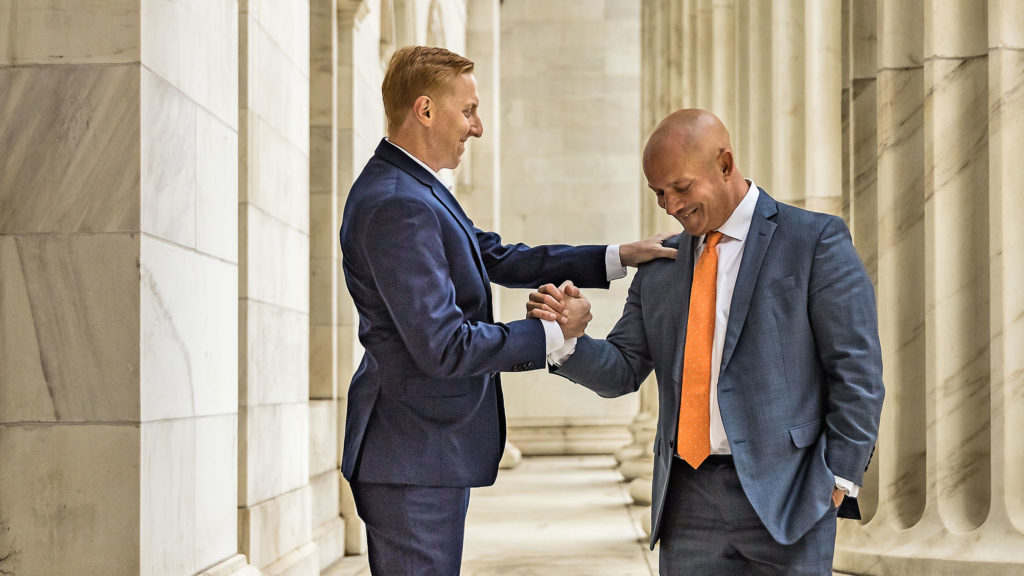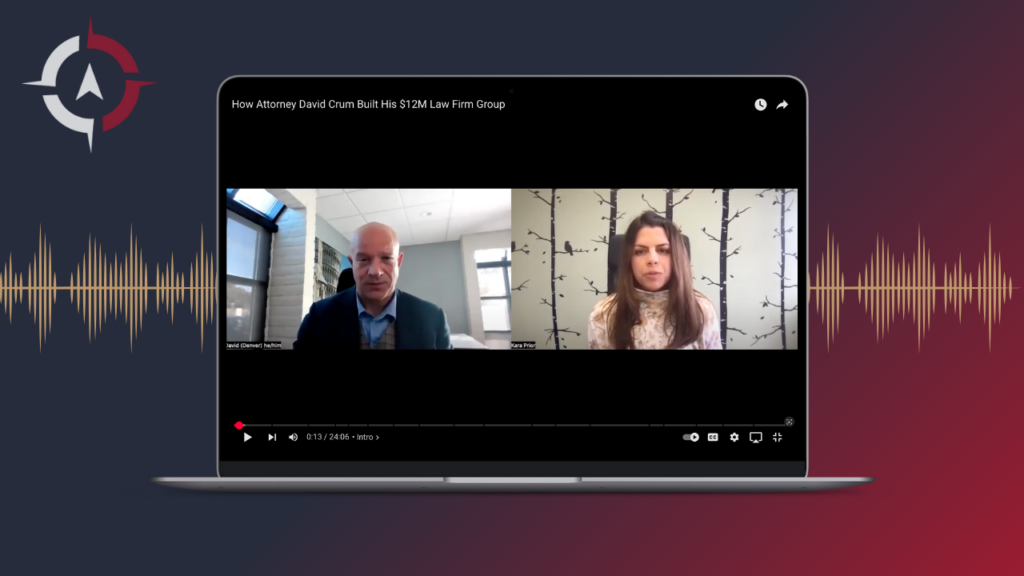The Rise of Influencer Marketing in the Legal Industry: A New Era for Law Firms
- Morgan Szarka
In recent years, influencer marketing has evolved from a niche strategy into a major powerhouse, completely transforming how businesses engage with their audiences. Originally popular with fashion, beauty, and lifestyle brands, influencer marketing has now found its way into an array of industries—including the legal sector. While Ruth Bader Ginsburg probably never imagined lawyers dancing on TikTok in 2024, this new trend in legal marketing is one that every law firm should at least be aware of. Let’s dive into the evolution of influencer marketing and discover how some lawyers are harnessing social media platforms like TikTok, Instagram, and YouTube to build their brands and connect with potential clients.
The Evolution of Influencer Marketing
Influencer marketing started as a way for brands to tap into the power of social media personalities who either had a large following or a loyal group of fans. These influencers, often just regular people with a knack for creating engaging content, offered a more genuine and relatable form of advertising compared to traditional methods. As the success of influencer marketing became clear, more industries began to adopt this strategy.
Influencer Marketing in the Legal Industry
Historically, the legal industry has been slow to adopt new marketing trends, sticking to traditional methods such as referrals, print advertisements, and billboards. However, the digital age has shifted how law firms approach marketing. Influencer marketing now gives law firms an opportunity to connect with wider and more diverse audiences, fostering connections that were previously difficult to achieve.
Lawyers as Influencers
Interestingly, some lawyers have fully embraced influencer marketing and become influencers themselves. Platforms like TikTok, Instagram, and YouTube have made it easy for lawyers to showcase their expertise, personalities, and day-to-day lives through short, engaging videos, sometimes leading to large followings.
One notable example of influencer marketing is Denise Rappaport Isaacs, a divorce and family lawyer in Florida, known on Instagram and TikTok as @DivorceLawyerDenise. Denise has gained attention for her Instagram reels and TikTok videos where she tackles frequently asked questions and interesting topics within divorce and family law. Her influencer marketing strategy involves breaking down complicated legal issues into quick, easy-to-understand segments, making legal advice accessible to her audience. Denise’s ability to communicate legal concepts clearly and concisely has not only built her a significant following but also positioned her as a trusted resource in her field.
Similarly, Darryl Isaacs, a personal injury attorney from Kentucky known on TikTok as “The Hammer,” has found success in influencer marketing by sharing more personal aspects of his life. With over 286,700 followers on TikTok and 86,800 on Instagram, Darryl didn’t gain popularity by discussing legal matters. Instead, his audience grew when he began documenting his weight-loss journey. A simple “What I Eat For Lunch While Trying to Lose Weight” video resonated with viewers, leading him to create a series that followed his meals and workouts. Darryl realized that sharing personal, relatable content connects more with audiences than strictly professional content, proving that authenticity is a powerful tool in influencer marketing for lawyers.
These examples show that by combining their professional knowledge with personal stories, lawyers can use social media to build trust, connect with a wider audience, and become influential voices in their field.
Leveraging Social Media Platforms: Effective Content Strategies for Lawyers
Social media platforms offer unique opportunities for lawyers to engage with their audiences, discuss trending topics, simplify legal jargon, and build their brands. Leveraging platforms like TikTok, Instagram, and YouTube, allows lawyers to create content that resonates with followers and shows off their expertise. Here are some effective ways that lawyers can use these platforms to maximize influencer marketing and create compelling content:
TikTok: Engaging and Informative Short Videos
Lawyers on TikTok can capture short, engaging videos to explain legal concepts, share tips, and even add some humor. This platform is perfect for creating easily digestible content that can reach a wide audience quickly. Lawyers like Anthony Barbuto (@thelawyer) and Erika Kullberg (@erikakullberg) have gained millions of followers by breaking down the legal system, providing judicial insights, and giving practical advice in a fun and approachable way. A great example of TikTok’s potential within influencer marketing is Ashley Whitman, a criminal defense and family law attorney at our own firm, Colorado Legal Group. When the Young Thug case was making headlines, she posted a “Lawyer Reacts” video, which went viral with over 275,800 views in the first 24 hours. These successes highlight how TikTok allows lawyers to connect with a younger, more diverse audience through creative content and influencer marketing.
Instagram: Visual Storytelling and Personal Connections
Instagram enables lawyers to share visual content, from infographics that simplify complex legal issues to client testimonials and FAQ reels. This visual-focused platform helps lawyers connect with their audience on a more personal level. For example, Emily D. Baker (@theemilydbaker), a former prosecutor, uses Instagram to discuss legal matters while also sharing parts of her daily life. Instagram is also a powerful tool for branding. Our CEO David Crum, esq., has branded himself as “The Divorce Assassin” based on the book he wrote about divorce and family law. The combination of branding, stories, reels, and posts gives lawyers the influencer marketing strategy they need to engage their audience and build a loyal following.
YouTube: Long-Form Educational Content
YouTube has long been a go-to platform in the influencer marketing space for longer-form content, making it ideal for deep dives into legal topics, case analyses, and educational series. Lawyers like Peter Tragos (@LawyerYouKnow) and Devin Stone (@LegalEagle) have built substantial followings by consistently delivering valuable and engaging educational content. However, YouTube isn’t limited to just long-form videos; it has also embraced shorter content with the introduction of “YouTube Shorts,” a feature similar to Instagram and Facebook reels. This allows lawyers to diversify their content strategy, combining in-depth explorations of legal issues with quick, engaging clips about trending topics. For example, when Will Smith slapped Chris Rock at the 94th Academy Awards, many lawyers jumped on the “Lawyer Reacts” trend, posting short videos with their real-time reactions and legal insights. Leveraging both long-form videos and YouTube Shorts allows lawyers to establish themselves as authorities in their field while connecting with a broader audience through a variety of content channels.
Benefits of Influencer Marketing for Law Firms
- Increased Reach: Influencer marketing allows law firms to connect audiences that they might not connect with through traditional marketing channels. Since influencers have followers who trust their opinions and recommendations, it’s easier for law firms to build credibility.
- Building Trust: Regularly sharing helpful content on social media helps lawyers build trust with their audience. This direct engagement makes legal services feel less intimidating and helps lawyers connect with potential clients on a more personal level.
- Humanizing the Firm: Influencer marketing gives law firms a chance to show their human side. Sharing stories, client testimonials, and behind-the-scenes content can make a law firm feel more relatable and accessible.
- Educational Opportunities: Lawyers can take full advantage of social platforms to educate the public about legal issues, providing valuable information to their followers while positioning themselves as experts in the field.
Strategically creating content on social media allows lawyers to increase their visibility, connect with potential clients, and build their brands in the digital age. Each platform offers unique benefits that help lawyers reach different parts of their audience, making social media and influencer marketing valuable tools for modern legal marketing.
Embracing the Future of Legal Marketing
While it may be uncertain whether a TikTok video will directly generate qualified leads, the value of having 200,000 people recognize your name online cannot be underestimated. The rise of influencer marketing in the legal industry marks a new chapter for law firms. With tools like AI, including ChatGPT, creating content on social media has become even easier.
The future of legal marketing is evolving, and social media is leading the way. Lawyers that embrace influencer marketing will not only reach wider audiences but also build stronger, more recognizable brands for their law firms. At US Legal Marketing Group, we specialize in creating tailored social media and influencer marketing strategies that drive results. Let us help you connect with potential clients, grow your online presence, and stay ahead of the competition. Contact US Legal Marketing Group today to take your legal marketing to the next level.


